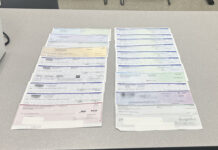
The District 2 Public Health Department reports a coyote tested positive for rabies after biting a person in Lumpkin County on Feb. 5. The person received medical attention, officials said. That same day, a bat was tested for rabies in Forsyth County, but the lab determined the specimen was unsatisfactory. As a result, the bat is considered positive.
“Because rabies incidents are recurrent in District 2, it is crucial to take precautions to protect yourself, your pets, and your family,” says District 2 DPH spokesperson Christina Joseph.
What is rabies?
Rabies is a fatal but preventable virus that primarily affects wild mammals, including raccoons, skunks, bats, and foxes in Georgia. It can spread to other wild animals, pets, livestock, or humans through bites, scratches, or exposure to the saliva of an infected animal.
The virus travels to the brain, causing fatal inflammation once symptoms develop. However, prompt care after exposure can effectively treat rabies.
Infected animals may exhibit restlessness, aggression, difficulty walking, or unusual friendliness.
Ways to guard against it
The health department recommends the following precautions to avoid exposure to the rabies virus:
- Make sure your pets and livestock have received the most current rabies vaccination.
- If you think you may have been exposed to rabies, seek medical attention immediately.
- Avoid wild or unfamiliar animals. If you encounter an injured animal, do not help, touch, or feed it.
- Teach children to ‘love your own, leave other animals alone’ as recommended by the Georgia Department of Public Health.
- Feeding animals outdoors attracts wild animals; remove any leftover pet food.
- If you suspect exposure to rabies, clean wounds with soap and water and seek medical attention immediately.
“Rabies post-exposure prophylaxis is a highly effective treatment if administered quickly after exposure,” a DPH news release states. “It includes a vaccine series that is serviced at all major hospitals in District 2.”
Almost invariably, the virus is fatal if untreated. Contact your local Environmental Health Office for information about vaccine access programs.
What to do if you suspect an animal is rabid
If you encounter a wild animal behaving strangely, avoid the animal and call the Georgia Department of Natural Resources (DNR) Ranger Hotline at 1-800-241-4113.
If you are bitten by an animal, please notify your local Health Department as soon as possible or Georgia Poison Control at 1-800-282-5846 after hours.
Learn more about rabies prevention and treatment at https://phdistrict2.org/environmental-health/7/ and https://dph.georgia.gov/environmental-health/rabies.






